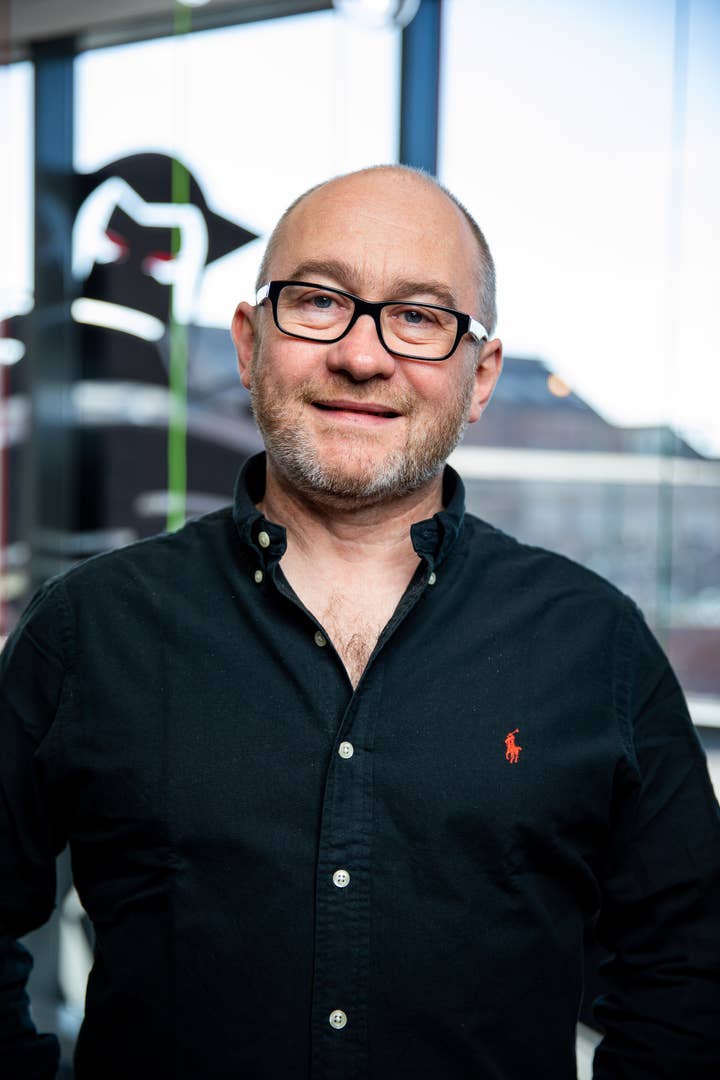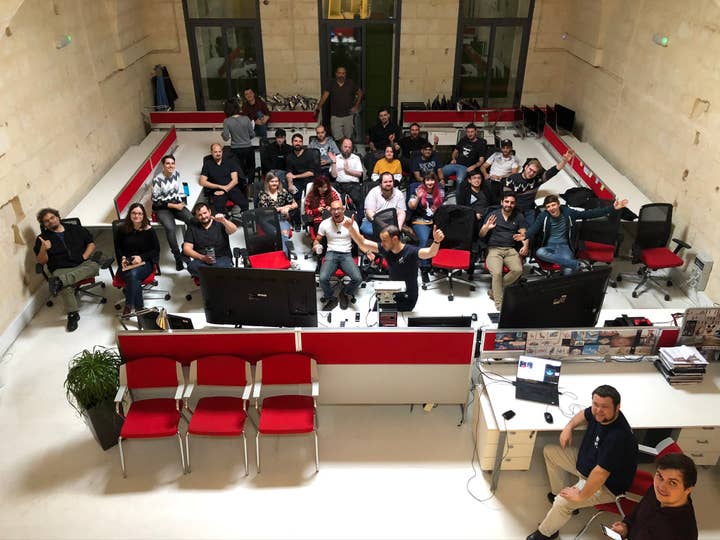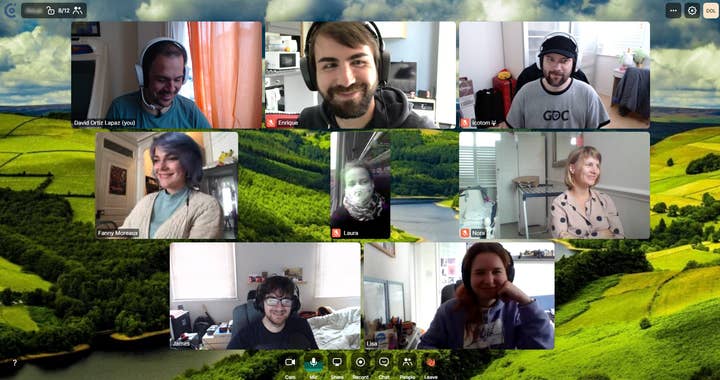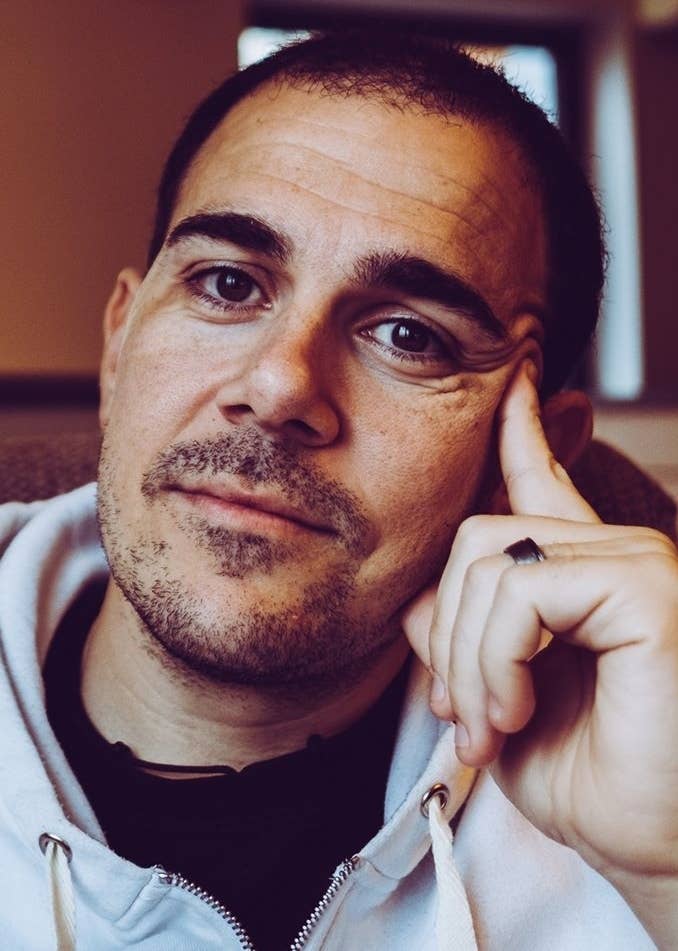How do you hire someone you've never met?
Recruiters and developers discuss the challenges of securing new talent during lockdown
Hiring the staff you need to grow your business is tough at the best of times, but when faced with social distancing measures or even a full-blown lockdown, the obstacles to recruiting may seem insurmountable.
Studio visits and face-to-face interviews are no longer an option, and the general uncertainty about every aspect of life makes the prospect of switching jobs more daunting for many applicants. Such circumstances inevitably take their toll on companies trying to expand their teams.
"People are adapting to this 'new normal' really well, but we do recognise that there is a lack of confidence for some," says Liz Prince, head of recruitment specialist Amiqus. "We're being asked for advice by our clients on things like how best to conduct video interviews, how to onboard new recruits and make them feel part of the team, how to carry out reviews, and so on."

OPM Recruitment founder and managing director Kim Parker-Adcock estimates that 20% of studios have frozen their hiring plans, although this has fluctuated as time has passed. However, many have continued with their recruitment strategy as it was before COVID-19 struck, and most of these have been able to recruit people remotely.
"However, the longer this isolation lasts, the fewer new jobs we expect to come available as companies may wait until new people can start in-house," she adds.
Sumo Digital managing director Gary Dunn tells us the Crackdown 3 developer has not changed its recruitment targets and still plans to grow its business significantly.
"Lockdown hasn't changed that, it's just changed what we may be able to achieve," he says. "And even that's too early to understand yet."
Similarly, communications and marketing agency Ico has still been pursuing its original recruitment targets, but the pandemic has inevitably created unavoidable hurdles.
"Employers' attitude to their staff and the challenges they are facing right now has never been so important as it is now"
Liz Prince, Amiqus
"Recruitment efforts have kept the same, but we had some applicants drop out of the process due to being unable to relocate, or their current house renting contracts being automatically extended as the lockdown is enforced," says communications manager David Ortiz. "Finding candidates was surprisingly straightforward and we've seen a good level of candidates trickle through on our latest process."
Ico's experience is indicative of perhaps the biggest effect of the pandemic on recruitment: reluctant applicants. That said, Prince observes there are still plenty of people looking to switch jobs during lockdown -- and even because of it.
"We are seeing candidates who are looking for new positions because their employers haven't treated them and their colleagues so well during this time," she says. "Employers' attitude to their staff and the challenges they are facing right now -- whether that's juggling home-schooling, mental health issues due to isolation, or even the struggle of separating home and work life -- has never been so important as it is now.
"The studios who get this right are the ones who are not just retaining staff, but are getting more loyalty and productivity from them right now."
She also adds there has been a "pull to home effect" where candidates working far away from family -- perhaps even in different countries -- are now seeking new positions closer to home.

Dunn estimates the number of applications Sumo receives has "definitely slowed" by around 45% since lockdown began.
"Interestingly, we haven't seen a slowdown of interviews so the quality of people applying by inference must have increased," he says.
Mobile developer Exient has been actively hiring, and in fact reports an increase in applications, although vice president of game publishing and business development Julian Jones says it's too early to tell if this is directly related to coronavirus.
"It could be that processes like furlough mean people are looking at their options in the market and maybe hedging their bets a little," he says. "It could also be that the lockdown has focused the minds of people who were looking for work before the pandemic struck. Either way, our experience is that, so far at least, supply of talent has remained consistent."
In terms of initial contact, the process of sourcing new recruits hasn't changed. Applications arrive in much the same way, and Exient, like so many companies with offices in multiple countries, conducts its first round of interviews via video calls.
However, companies have been forced to adapt their processes so that all interviews and discussions are handled online. Jones believes this "encourages a much more structured and rigorous process, where competency interviewing is of primary importance and empathy-based interviewing takes a back seat."

But Parker-Adcock reports that not being able to meet potential recruits is a major problem for many of her clients.
"There are some things you won't be able to tell by not being in the same room -- manners, smell, ability to wear trousers and so on. However, if the company is thorough enough this doesn't seem to be causing a problem, and a new hire seems to be just as likely to be successful than if they had a studio visit."

Prince adds: "Conducting interviews via video conferencing is more tricky than traditional methods. Interviews are nerve-wracking for candidates under normal circumstances, so add in technical issues and a lack of 'real' human interaction -- a shake of the hand, the offer of a coffee or water -- and it can mean 'stage fright' for some."
She continues: "The one piece of advice I think studio bosses should take on board during this time is to showcase your company culture. Candidates still have a choice and, even before the lockdown and this new way of working, they were focusing more and more on company culture, the opportunities of working remotely, flexible hours, team socials, wellbeing initiatives and more. Salary, location and projects remain important, of course, but the lockdown is making more people look long and hard at how they want to work going forward."
Jones agrees, adding that Exient has been trying to keep its video interviews very informal and giving a little more focus on describing how the studio operates on a day-to-day basis. It's also important to give the applicant more opportunities to ask questions.
"The lack of face-to-face engagement isn't ideal, but it's something I think we'll all just need to get used to until such time as social distancing is relaxed," he says. "We're a digital creative industry after all, so now we must be digitally creative when we're hiring too."
"The longer this isolation lasts, the fewer new jobs we expect to come available as companies may wait until new people can start in-house"
Kim Parker-Adcock, OPM
By way of example, Jones says his teams have been arranging informal 'meet ups' online so staff can socialise. Similarly, Dunn reports Sumo's studios have been coming up with fun ways for applicants to meet their prospective colleagues; one studio hosts online multiplayer sessions, while Red Kite Games has created the Red Kite Inn, a virtual pub on Zoom where developers talk over beers on a Friday afternoon.
"All our guys are being innovative around making themselves comfortable with the developers and how they fit in with their culture as people, and that's great," he says. "I like the flexibility and creativity they're coming up with."
Prince encourages more companies to explore similar options: "Making new recruits feel part of the team is also a challenge, but again, our brilliantly creative industry is getting around these problems. One studio is sending branded hoodies, mugs and so on to new hires, while another is 'buddying up' new staff with individuals from other teams to help them get to know their colleagues across the business remotely."
Lockdown has benefited recruiters in a way, since potential recruits are now easier to reach. Parker-Adcock says: "Candidates are more flexible and readily able to interview now that they're mostly at home with time on their hands. We are finding some hiring managers are also more responsive and seem to be more productive with less distractions."

Ortiz observes that the vast majority of people Ico has interviewed for positions so far didn't have current employment.
"People seem to be moving very quickly when looking for a job so moving slowly might mean losing good candidates"
David Ortiz, Ico
"I believe it signals a clear path to companies, as more talent is readily available, meaning people can start much sooner than your usual two to four weeks' notice," he says. "People seem to be moving very quickly when looking for a job so moving slowly might mean losing good candidates.
"The current situation also means a lot of people are finding themselves out of a job, and with video games being a somewhat stable sector right now you might see people willing to jump on new career paths."
Just days before our interview, Ico hired someone from France, but this introduced a new challenge: onboarding. Ordinarily, the new recruit would have moved to the UK and joined the team in its Brighton office, but with this no longer an option, the company has put more effort into online resources and documenting processes to help its latest hire get up to speed.
"Having to do an initial employee onboarding all remote is far from the best situation -- particularly at a time where you want your new employees to feel the company atmosphere, be able to ask questions, and form bonds with the rest of the members of the team," says Ortiz. "Not having that person physically around is definitely a challenge for a non-remote team like ours."

It's a situation many companies face. Exient has onboarded several new starters over the past few months, despite never physically meeting any of them. Sumo, meanwhile, made the same number of job offers in the first four weeks of lockdown as it did during the same period in 2019.
"We've already onboarded people in the UK and abroad," says Dunn. "Hats off to our IT team, they've done a marvellous job. They're pretty much the only people that go into the studio, and they're building new equipment for new starters and shipping it to them, making sure they've got all the kit for day one in a socially distant, safe way."
Looking forward, it's impossible to know when recruiting processes might return to the way they were -- if they ever do. But agencies remain confident the industry can continue to serve job-seekers thanks to how digital and adaptable its work has proven to be.
"We've heard some horror stories from other recruitment companies in different industries," says Parker-Adcock. "Fortunately, we have not had anywhere near the same negative issues as some sectors."
She adds that the number of new hires is likely to drop between 20% and 30% in the next two to three months if the global situation does not change drastically, adding: "When the world is back to normal -- whatever that means -- we fully expect recruitment to go back to normal if not increase in the games industry."
Prince adds: "We're very fortunate to be part of a digital industry that's in demand and can continue to thrive through this crisis. We've all adapted and as the situation evolves so will the industry.
"When isolation lifts I expect things to be different again, not how it was pre-lockdown and not how we've been experiencing things recently, but a blend of the two. Another new normal will emerge."
